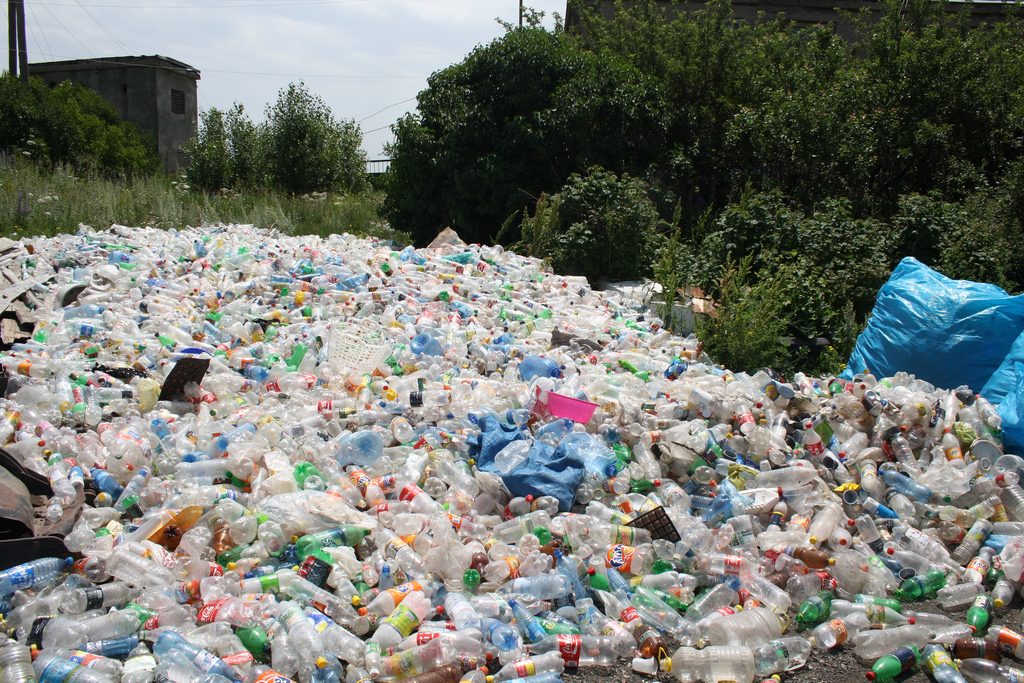11 Dec 2024

Tired Earth
By The Editorial Board

This stark assessment was reached by an international team of experts from Sweden, Norway and Germany who stress that the rate of plastic pollution is likely reaching a tipping point for the planet.
“Plastic pollution accumulating in an area of the environment is considered ‘poorly reversible’ if natural mineralization processes occurring there are slow and engineered remediation solutions are improbable. Should negative outcomes in these areas arise as a consequence of plastic pollution, they will be practically irreversible,” they explain in a study.
“Potential impacts from poorly reversible plastic pollution include changes to carbon and nutrient cycles; habitat changes within soils, sediments, and aquatic ecosystems; co-occurring biological impacts on endangered or keystone species; ecotoxicity; and related societal impacts,” the scientists add.
Plastic waste, often in the form of microplastics, has permeated the planet from the tops of mountains to the depths of oceans. And we continue dumping yet more plastic into the oceans and onto land at an increasing rate.
By 2016, it was estimated that people around the planet dumped anywhere from 9 to 23 million metric tons of plastic a year into rivers, lakes, seas and oceans with a similar amount dumped onto land yearly. By 2025 as much as double of this already colossal amount might be released into water and onto land if current rates of plastic waste carry on unchecked.
“Plastic is deeply engrained in our society, and it leaks out into the environment everywhere, even in countries with good waste-handling infrastructure,” observes Matthew MacLeod, a professor at Stockholm University in Sweden who was lead author of the study.
The trouble is that current attempts at lowering the rates of plastic waste from recycling to cleanups are insufficient in the face of the scale of the problem. For instance, cleanups may work well in some localized areas such as around towns and cities, but they are far less feasible in more remote locations with no or few people around, to say nothing of the seas where cleaning up most plastic waste is pratically impossible.
That is why the problem of plastic waste must be tackled at the source, meaning we must eliminate single-use plastic items and other disposables.
“The world promotes technological solutions for recycling and to remove plastic from the environment. As consumers, we believe that when we properly separate our plastic trash, all of it will magically be recycled,” notes Mine Tekman, a PhD candidate at the Alfred Wegener Institute in Germany who worked on the study.
“Technologically, recycling of plastic has many limitations, and countries that have good infrastructures have been exporting their plastic waste to countries with worse facilities. Reducing emissions requires drastic actions, like capping the production of virgin plastic to increase the value of recycled plastic, and banning export of plastic waste unless it is to a country with better recycling,” Tekman adds.
Time is pressing because the vast quantities of plastic already in the environment could cause large-scale and even global problems. One potential threat is that plastic pollution could drive further biodiversity loss in the oceans, such as by decimating fragile coral reefs in the tropics where they are already suffering from the effects of climate change and other environmental stresses.
Another threat is that as vast amounts of plastic waste begin to decompose in the environment through weathering they could release large quantities of toxic chemicals into the environment, harming a myriad of creatures in the process.
“Right now, we are loading up the environment with increasing amounts of poorly reversible plastic pollution. So far, we don’t see widespread evidence of bad consequences, but if weathering plastic triggers a really bad effect we are not likely to be able to reverse it,” MacLeod says.
“The cost of ignoring the accumulation of persistent plastic pollution in the environment could be enormous. The rational thing to do is to act as quickly as we can to reduce emissions of plastic to the environment,” he adds.
Source : sustainability-times.com
Comment